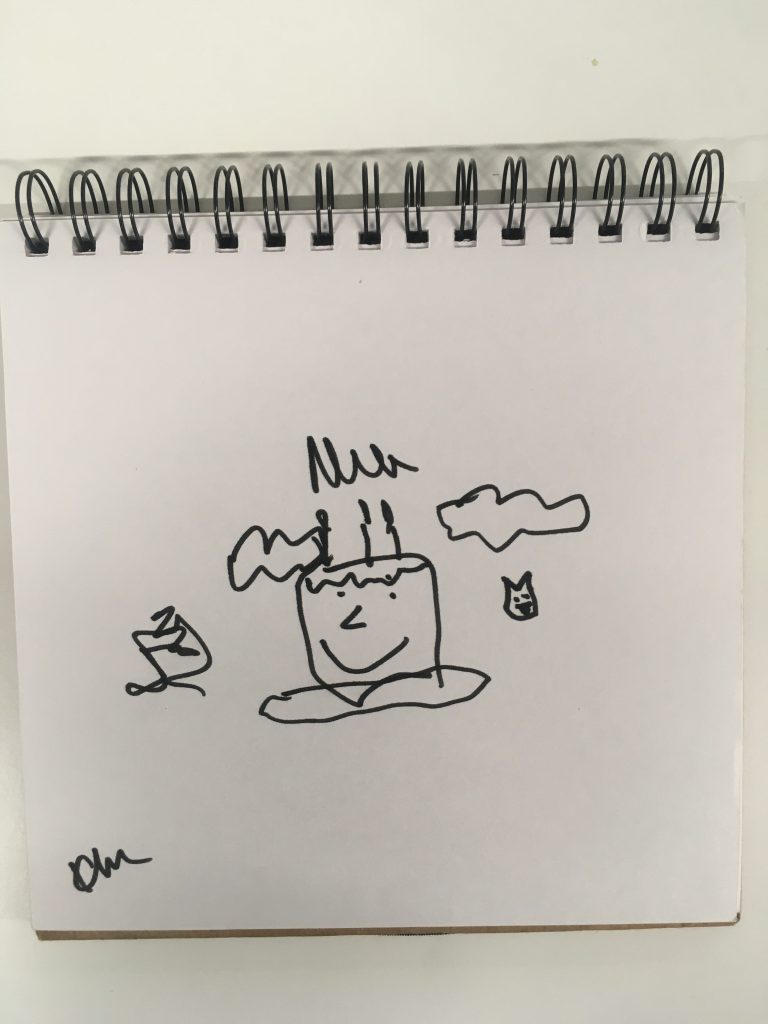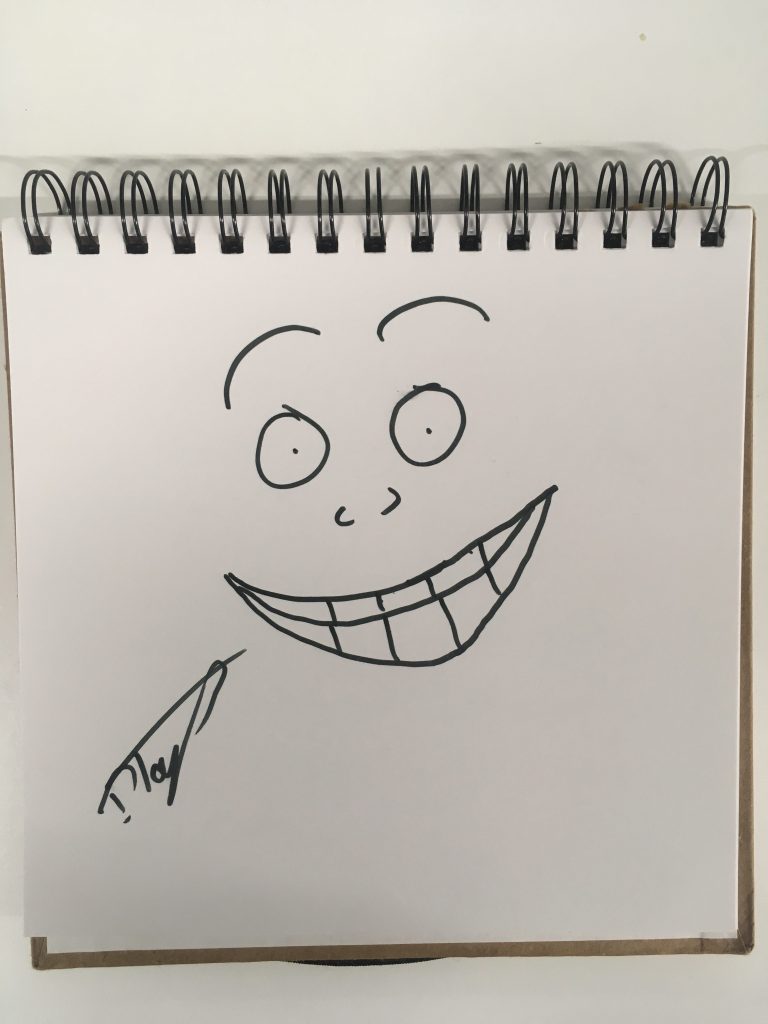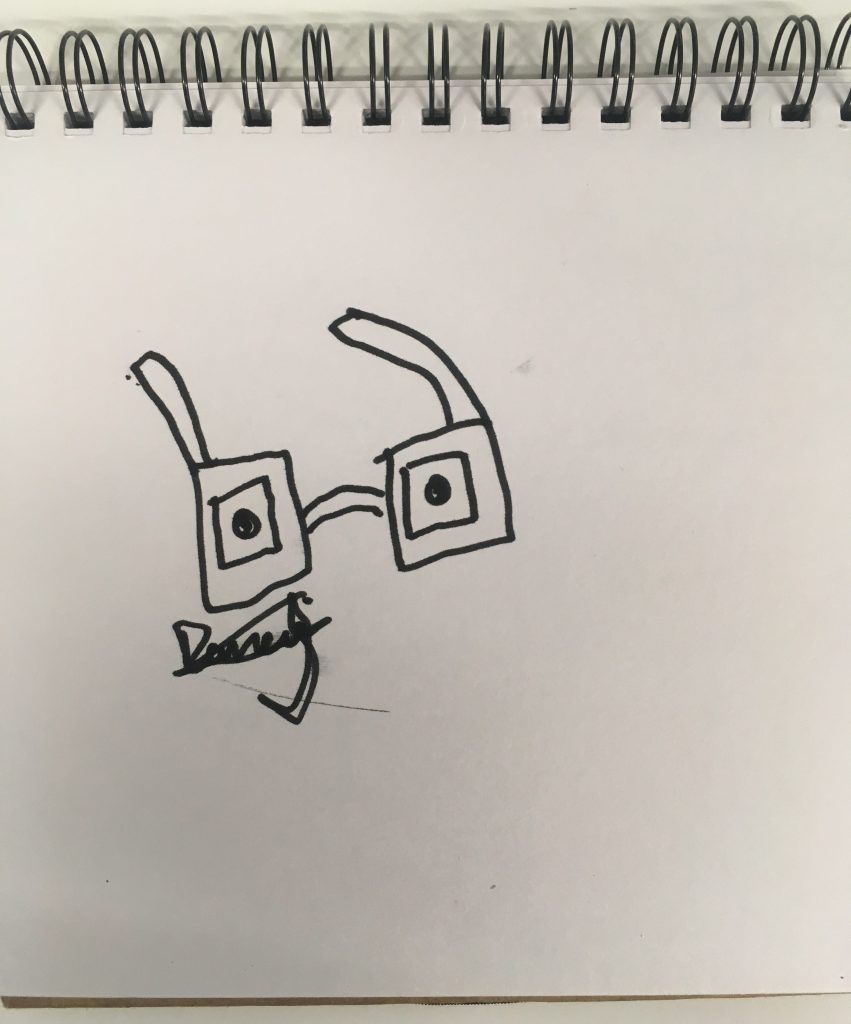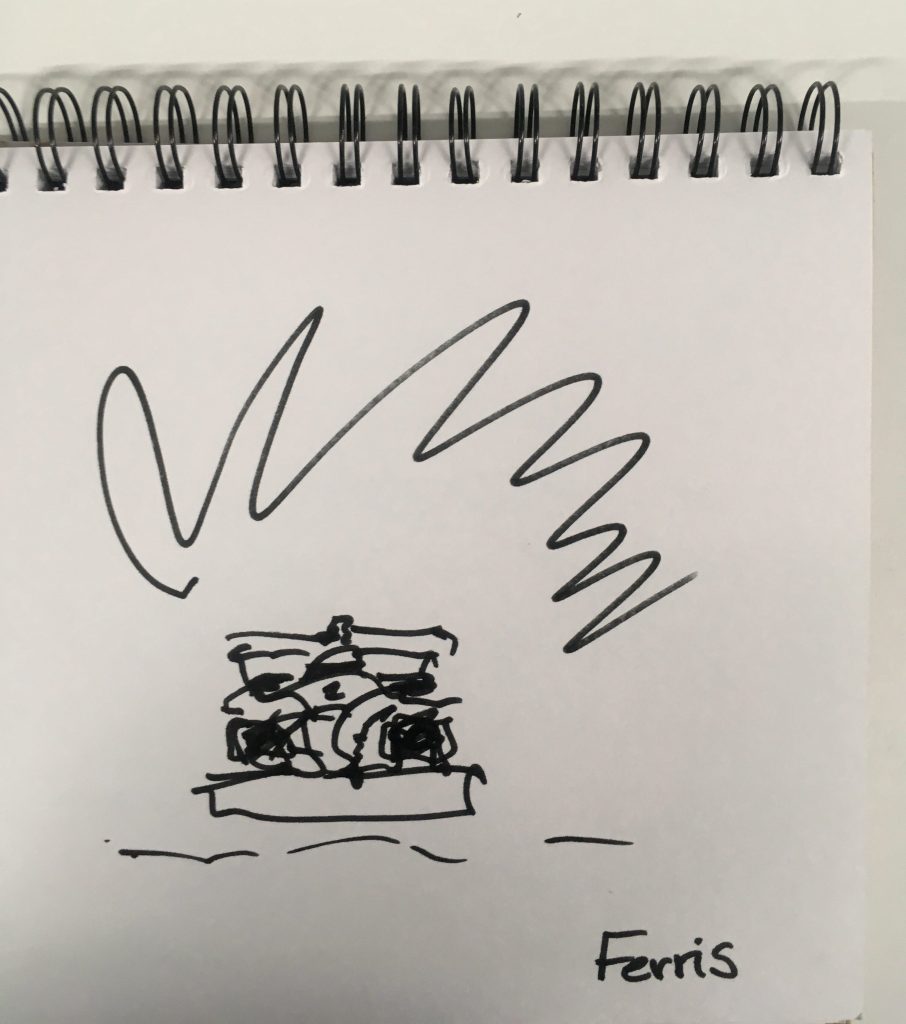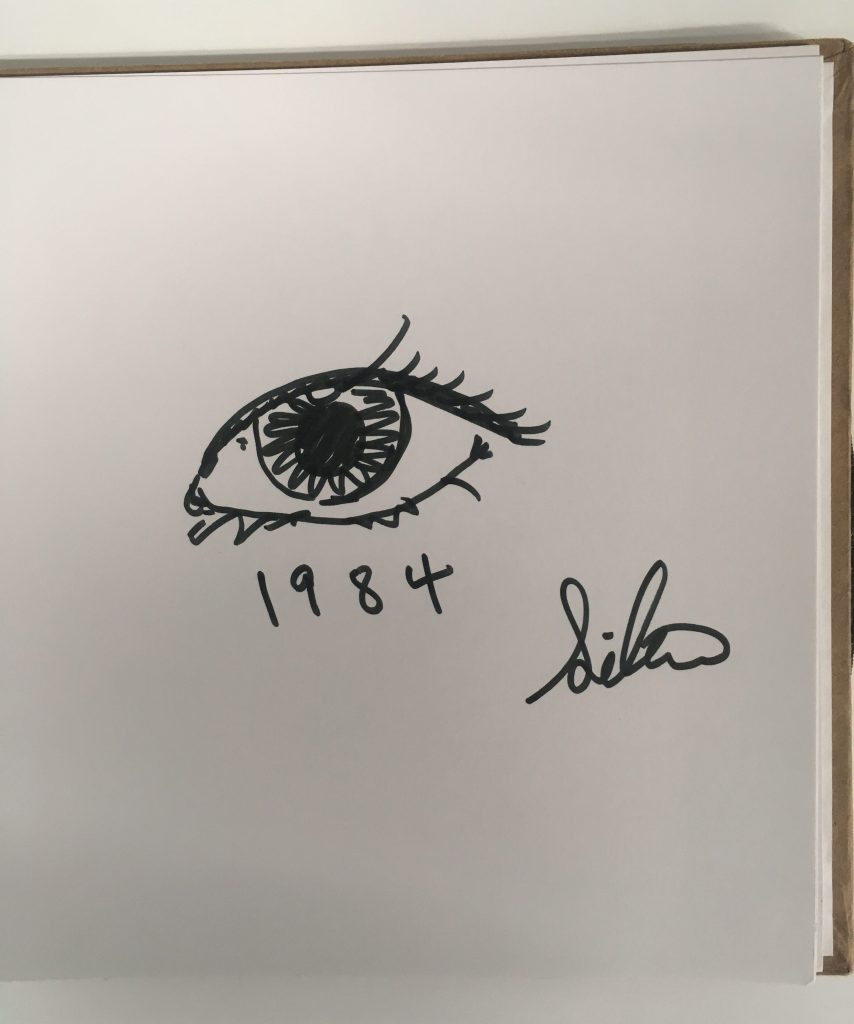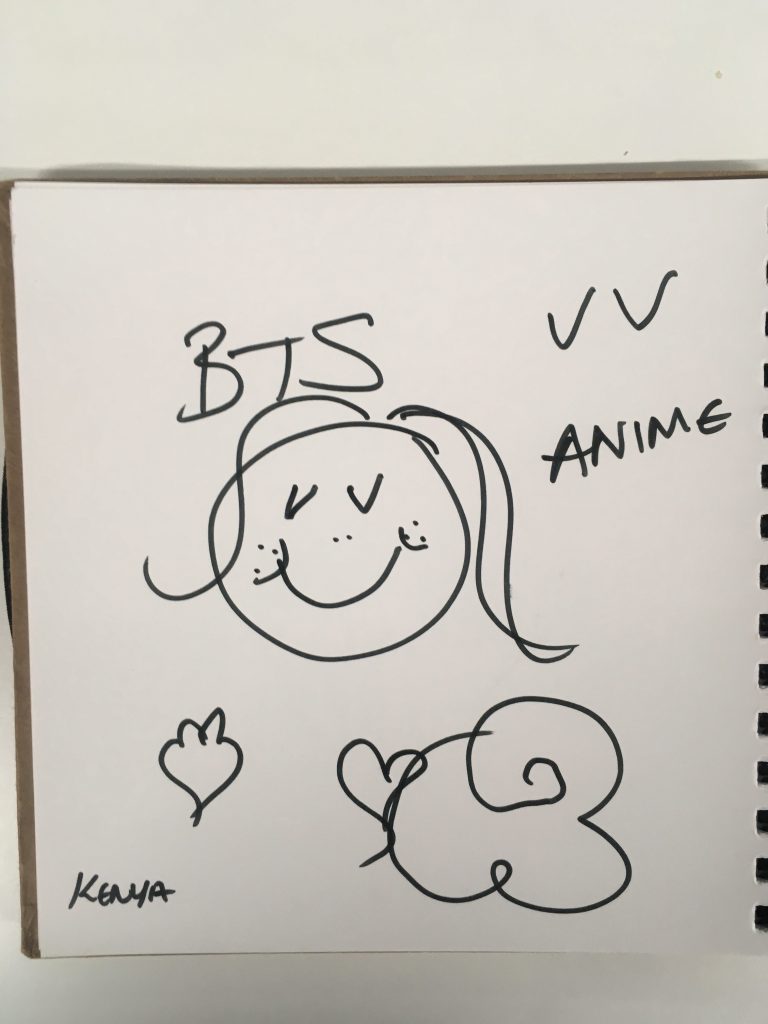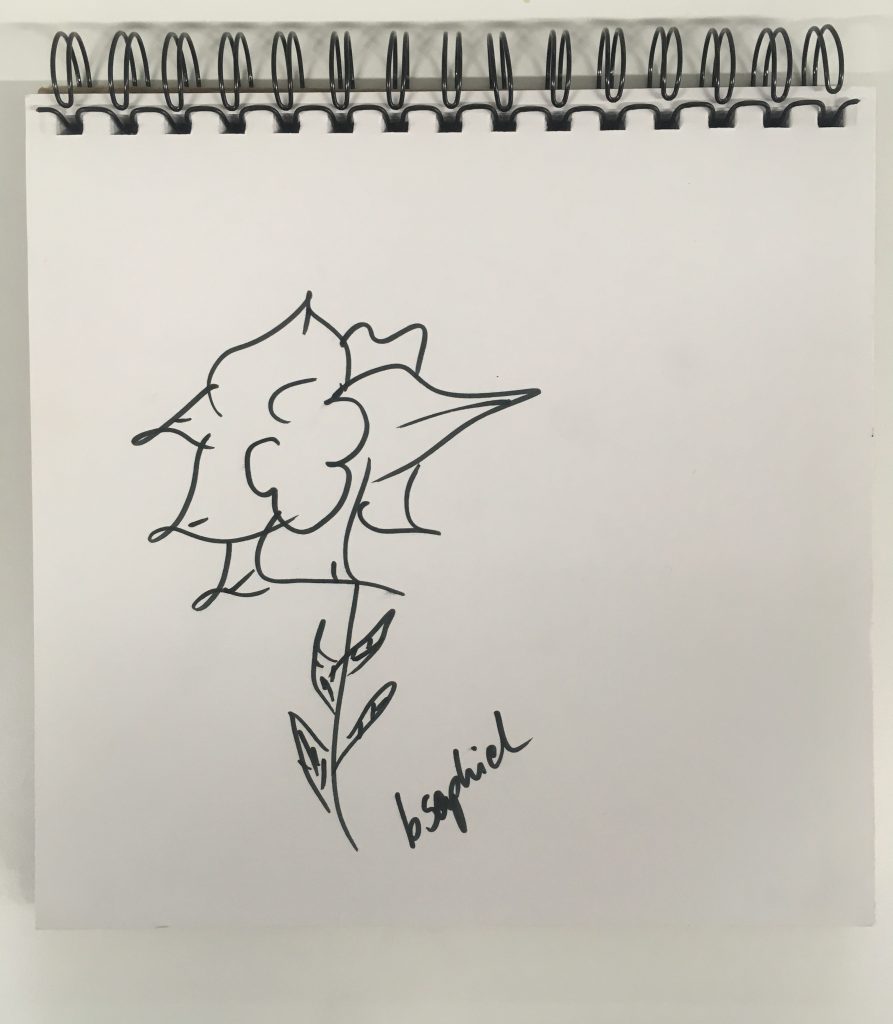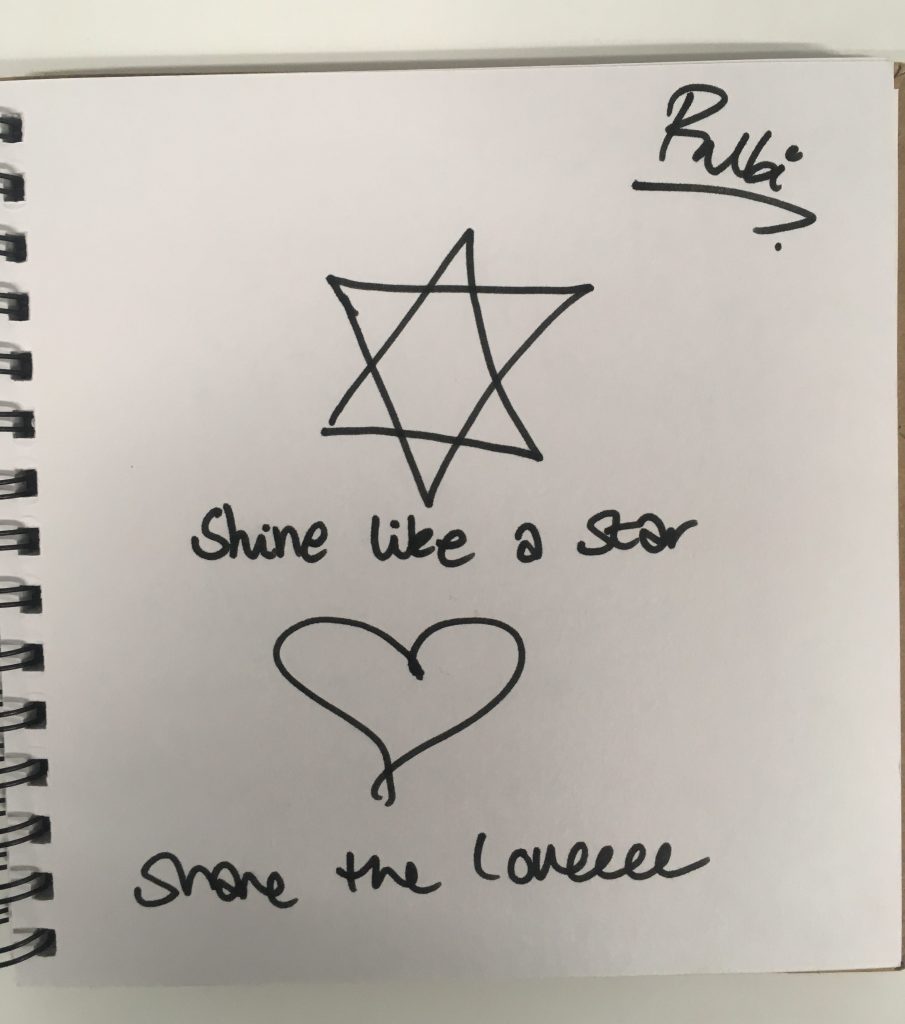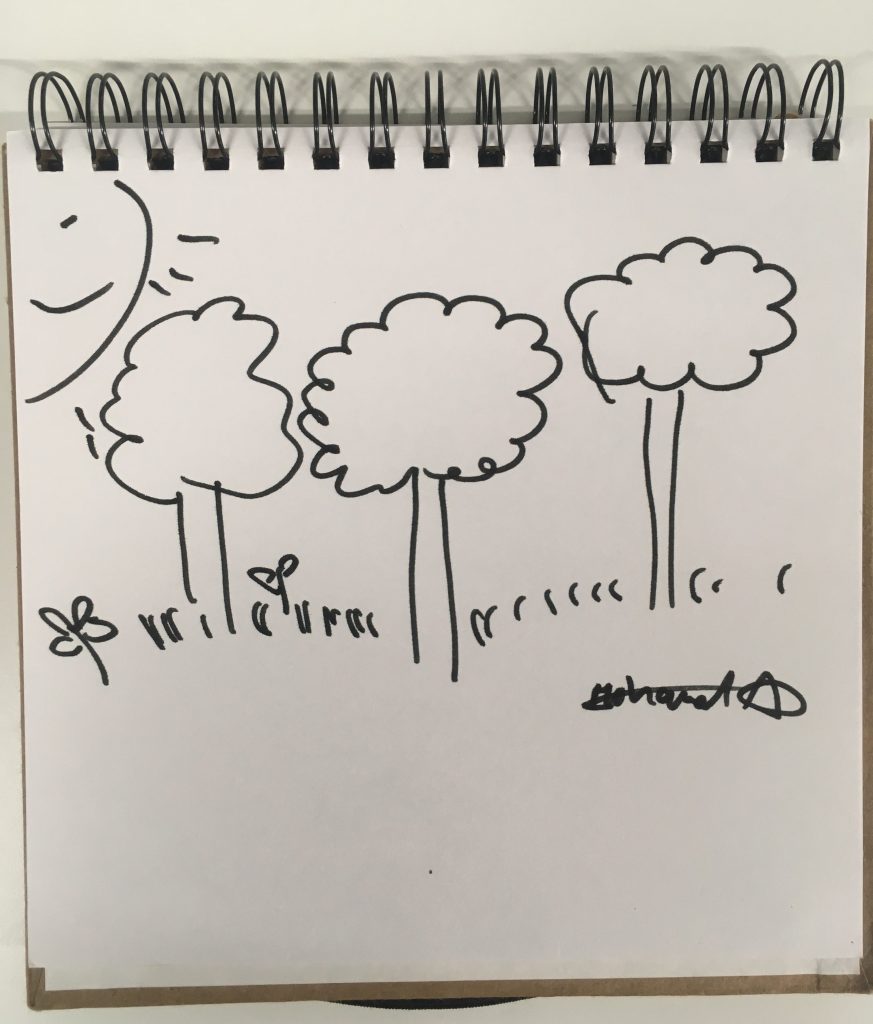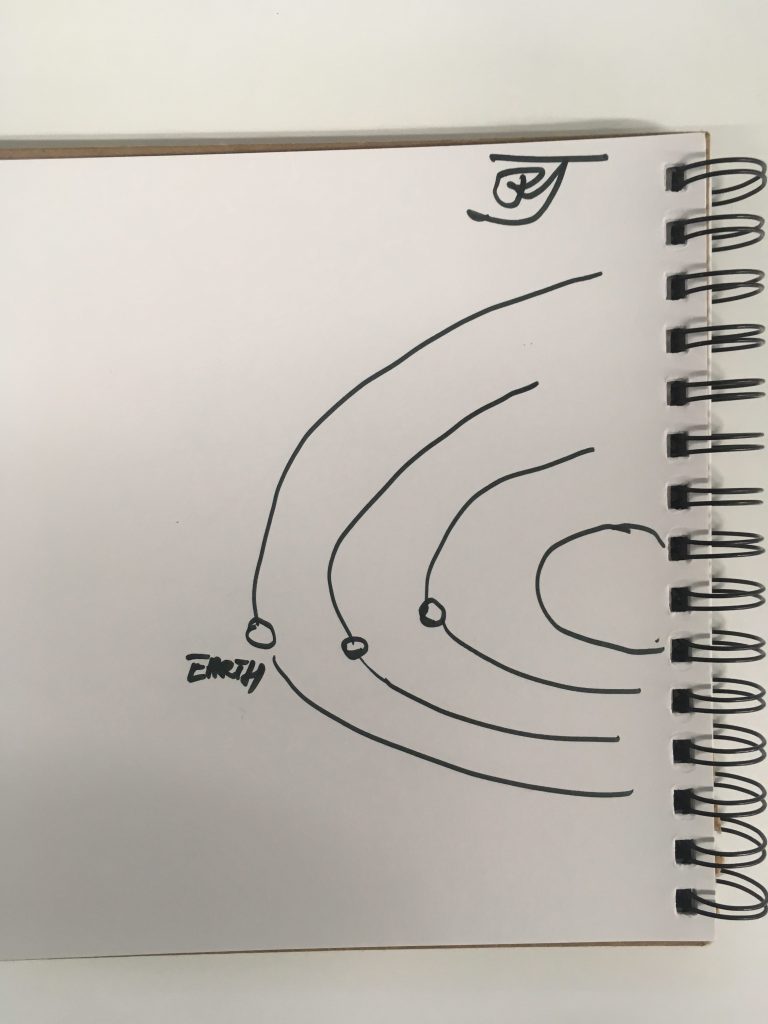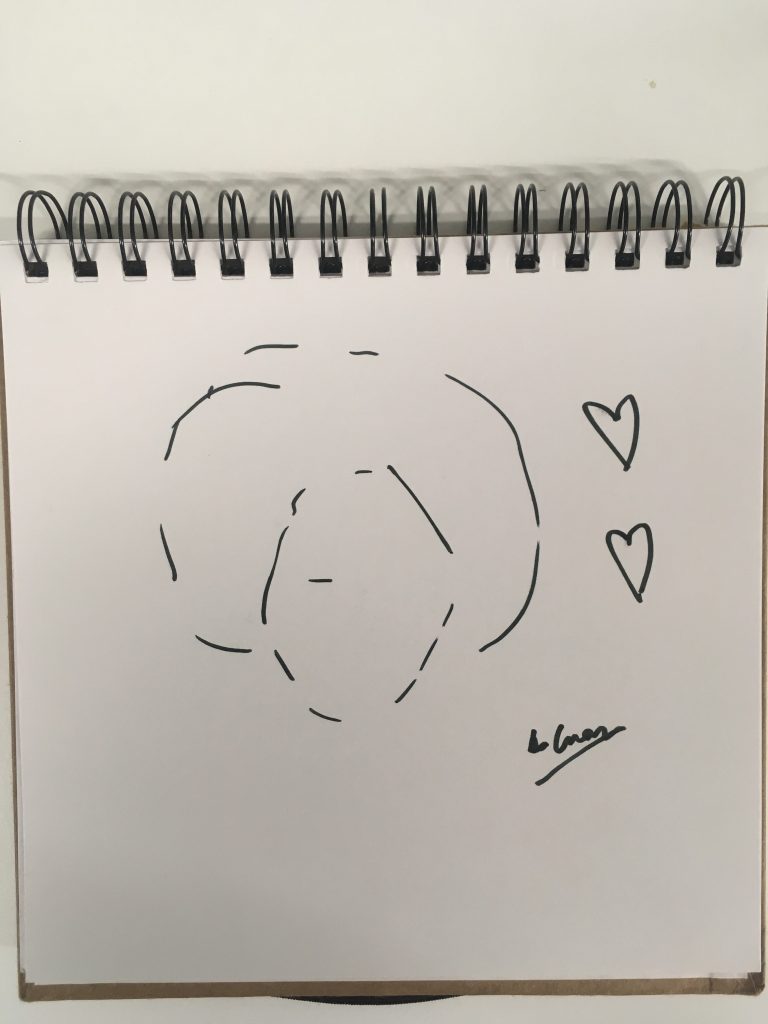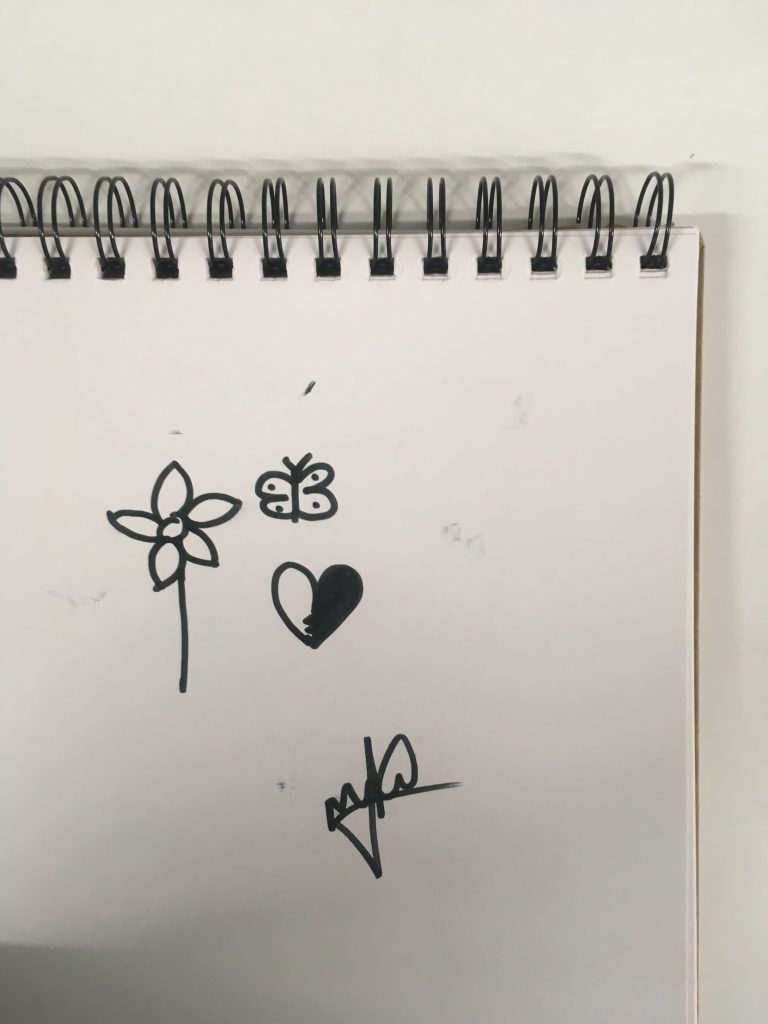Can “no great genius has ever existed without a strain of madness” be maintained when it’s the stress of budget pressures, deadlines and overwhelming work-days, causing those in the fashion industry to burn-out.
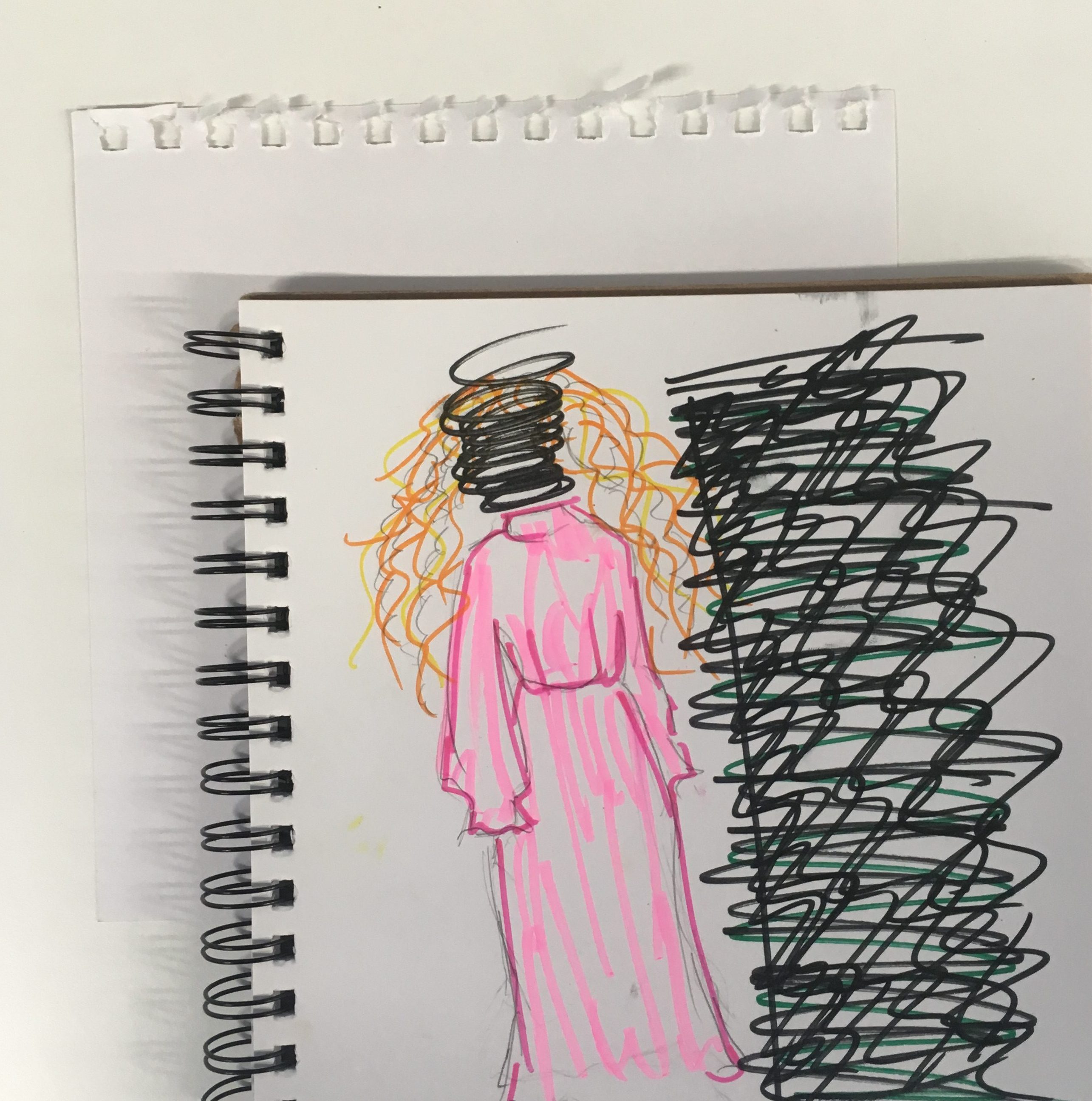
Tortured artist a doodle in a minute by Ray
In recent years high-profile designers, Alexander McQueen, L’Wren Scott and Kate Spade have committed suicide.
Louis Vuitton men’s artistic director and Off-White founder, Virgil Abloh, cancelled several appearances and didn’t attend his spring 2020 Off-White show. The designer is taking a few months off his hectic schedule to better his mental health.
Abloh is not the only one speaking out about the damage the industry can inflict on your physical and mental health. John Galliano blames the stress of the fashion industry and success of Dior as a contributing factor to his infamous antisemitic rant.
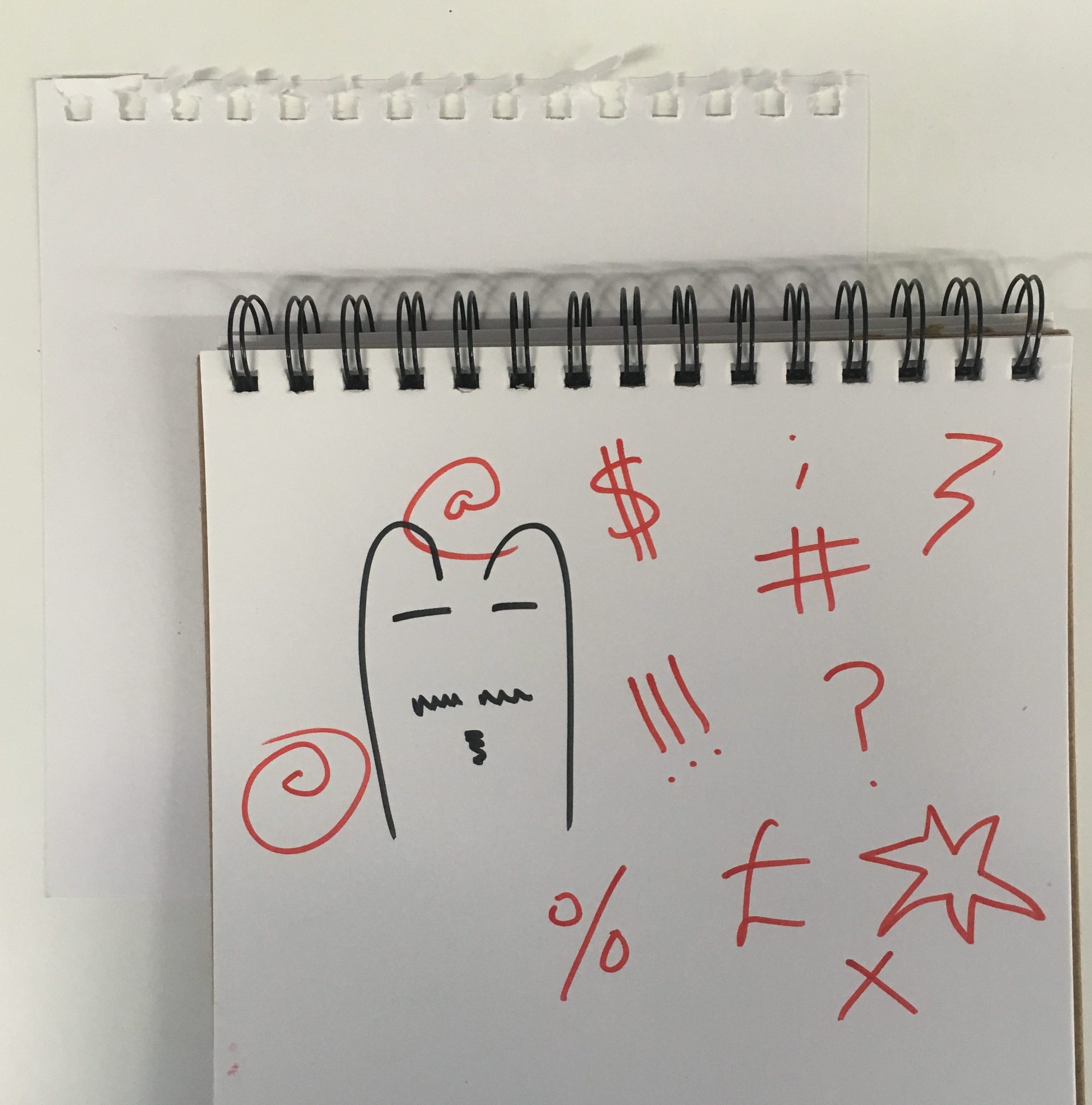
Galliano a 30-second doodle by Ray
The mad genius is a familiar trope, certainly some of fashion’s greatest minds have faced mental health issues. In the business there is a clear relationship between creative genius and poor mental health. Though under the spotlight a lack of critical awareness allows the tortured artist to remain romanticised.
Artistic expression is a valuable form of therapy in treating varying mental health issues, despite its provision of such expression the environment that surrounds fashion remains unfavourable. To help soothe the news day, students at the Voice of London were challenged to express themselves in 30-seconds – we can’t say it helped.
Despite recognition the issue largely remains ignored. Following a student suicide, the Business of Fashion published a report that brought the teaching methods at Antwerp Academy into question. The report published last year, revealed that current and former students of the prestigious fashion school suffer from issues of ill mental health caused by the pressures of the course.
The students studying at the Royal Academy of Fine Arts, expressed experiences of extreme exhaustion and stress (with some resorting to drug use) in attempts to manage their impressive workload and impossibly high standards. The fashion school has a graduation rate of only 23%.
Even the most distinguished schools – Parsons School of Design and Central Saint Martins, whose notable alumni include global talents (such as Alexander Wang, John Galliano and Alexander McQueen) experience a slew of student dropouts. The overwhelming workloads, exacting standards, harsh criticism and feelings of neglect prove too much to bear.

Burning at both ends a doodle in a minute by Ray
But this is not news to the fashion world – these stories continue to be told and heard in schools, design studios and published in magazines.
In general, schools and industries experience consequences of a large workload and criticism, however fashion seems to face unique pressures. The cyclic nature of the industry provides little room to breathe. You must set the trend or say ahead of it. Remain in constant reinvention. And pursue perfection. Fashion is prompt, competitive and without mercy, creating a stressful working environment.
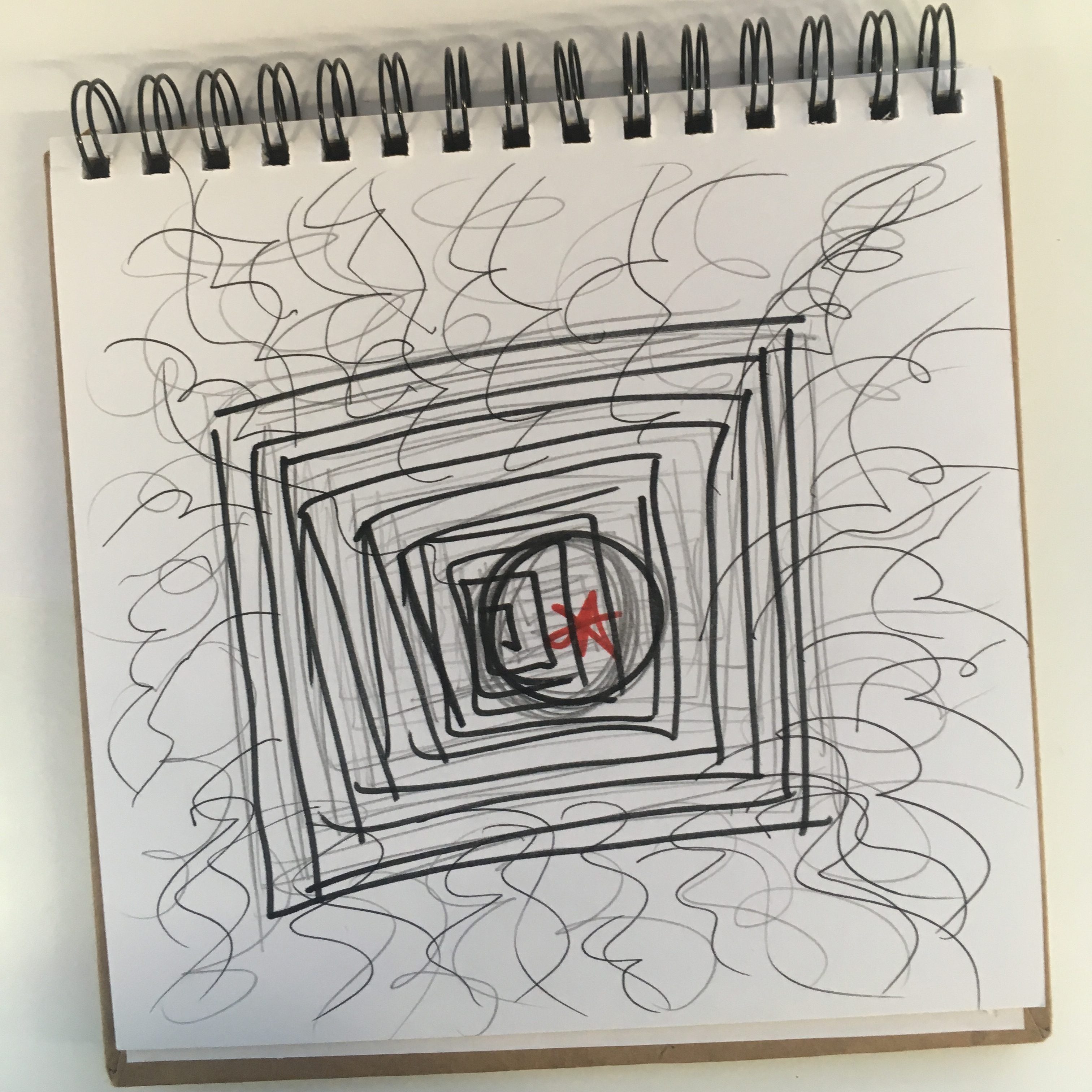
Stuck in the cycle a 30-second doodle by Ray
Voice of London spoke to designer and fashion student, Jackie Yates, to discuss mental health for those entering this industry. The 56-year-old remains active in fashion, from apprenticeships at ateliers, to retail marketing teams, to designing collections for church’s, and back to college (…twice). Now she’s balancing he homework and creating her own brand.
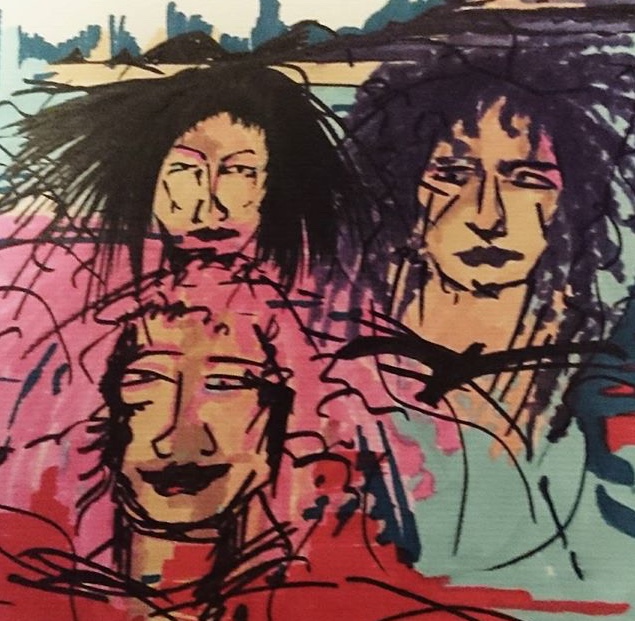
Fashion an illustration by Jackie Yates
Do you believe fashion has a mental health problem?
“I don’t know if I can answer that honestly.”
Have you experienced a mental health problem while working in fashion?
“No. But, when you take on a piece of work no matter how big it is, it is down to you to get it right. That comes with its own pressure. Nothing is perfect, all you can do is your best. You’ll question almost everything, ‘It’d be better if it had this, or if I had time to tweak that’. I realised completion doesn’t have an exacting standard, so I think that helped me. The ideas you put on paper can’t always meet the product. If the experimentation and construction don’t bring you enjoyment by the end you can only feel deflated. It does bring you down. But, it’s by degrees and not something that should stop you from moving on the next project and getting great joy from it.”
What is it about fashion that has the potential to effect mental health?
“Fashion doesn’t accord any kind of mental health issues. From a maker POV if you’re ultimately responsible- which is not unique to fashion- It bears a lot of pressure on the individual. And it’s a personality thing, some people are built to take more pressure. You require a unique ability to have a self-awareness, self-understanding and self-assertion because it stands on your shoulders. Being ultimately responsible for that thing [garment] can be quite a heavy burden regardless of success. If you don’t have that fortitude then yes, there’s going to be a certain pressure that would affect one’s mental health.”
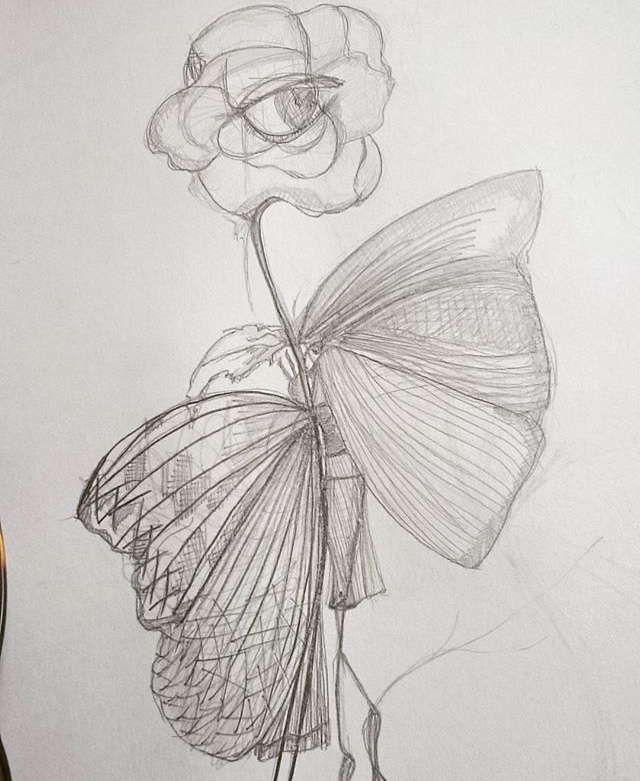
Self-awareness an illustration by Jackie Yates
How can these issues be overcome?
“I’m not quite sure. I know there is a massive outcry with a few designers taking their lives but, it is particular to fashion I don’t think so. People take their lives for many contributing factors. I believe mental health to be subjective. More young people are suffering from it [mental health issues], it seems. I think it has a lot to do with modern lives and the way things are organised. However, not everything should be medicalised, feelings of stress, sadness and anxiety are completely normal and perhaps if there were lessons in place to help people deal with that the industry would fare better. So, to sum up, the way things are organised needs to change. Accommodate humans we’re not robots, I don’t know of anyone who can maintain their sanity on three hours of sleep.”
Advice for young people breaking into the industry:
“My advice to newcomers is stick to your vision, be true to yourself and do what you can do to the best of your ability. You don’t have to keep up with it all. Know who you are, know your niche. Your ideas and what you want to carry forward must service that market to your best ability of your ability because that is what will make you shine, and a good work ethic and will keep you sane.”
Anything to be vigilant about?
“There’s a lot of secretive stuff in the fashion industry, it comes from the assumption that those next to you will steal your idea. And yes, there’s a lot of it, technology seems to have made it worse. Students have had their work stolen by established designers and brands which is bad and only increasing secrecy and people to work in covert way, not opening about or discussing their ideas – which I believe to be a very important part of idea development.”
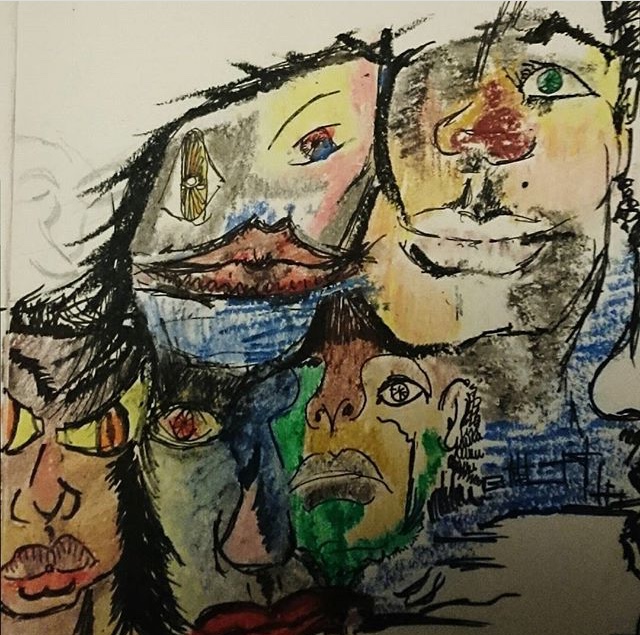
Self-expression an illustration by Jackie Yates
Any parting wisdom?
“Once you see yourself being involved and invited and, you’re actively participating, you’ll forget that once you were outside shouting.”
Words by Rosa Yates


